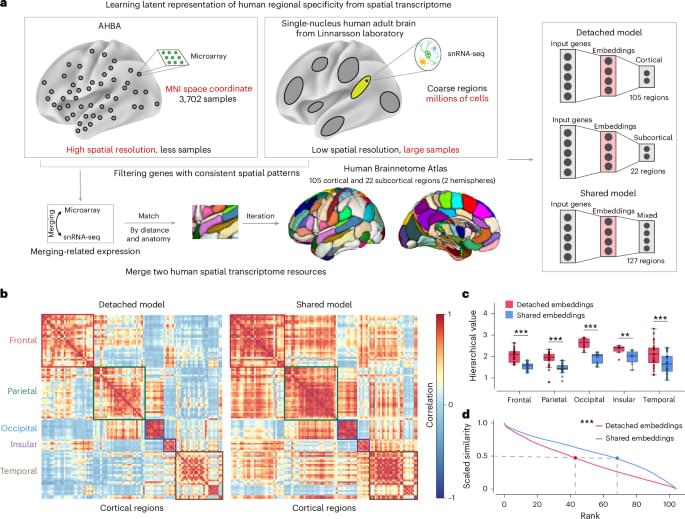Peter H. Diamandis
Category: mapping – Page 4

A “living fossil”: for the first time, divers from France capture rare images of an emblematic species in the waters of Indonesia
The encounter, deep beneath the surface of Indonesia’s Maluku Islands, did not just produce striking images. It opened a rare window on one of the ocean’s most mysterious creatures: the coelacanth, a fish once written off as extinct for millions of years.
In October 2024, French divers Alexis Chappuis and Julien Leblond descended to around 145 metres off the Maluku archipelago, in eastern Indonesia. They were using advanced rebreather systems and specialised suits designed for long, deep technical dives.
For two years, Chappuis had been poring over charts and sonar data, mapping underwater cliffs and cold upwellings that might harbour coelacanths. The terrain he targeted was steep, fragmented rock riddled with ledges and crevices, a layout similar to known coelacanth habitats in other parts of the Indian Ocean.
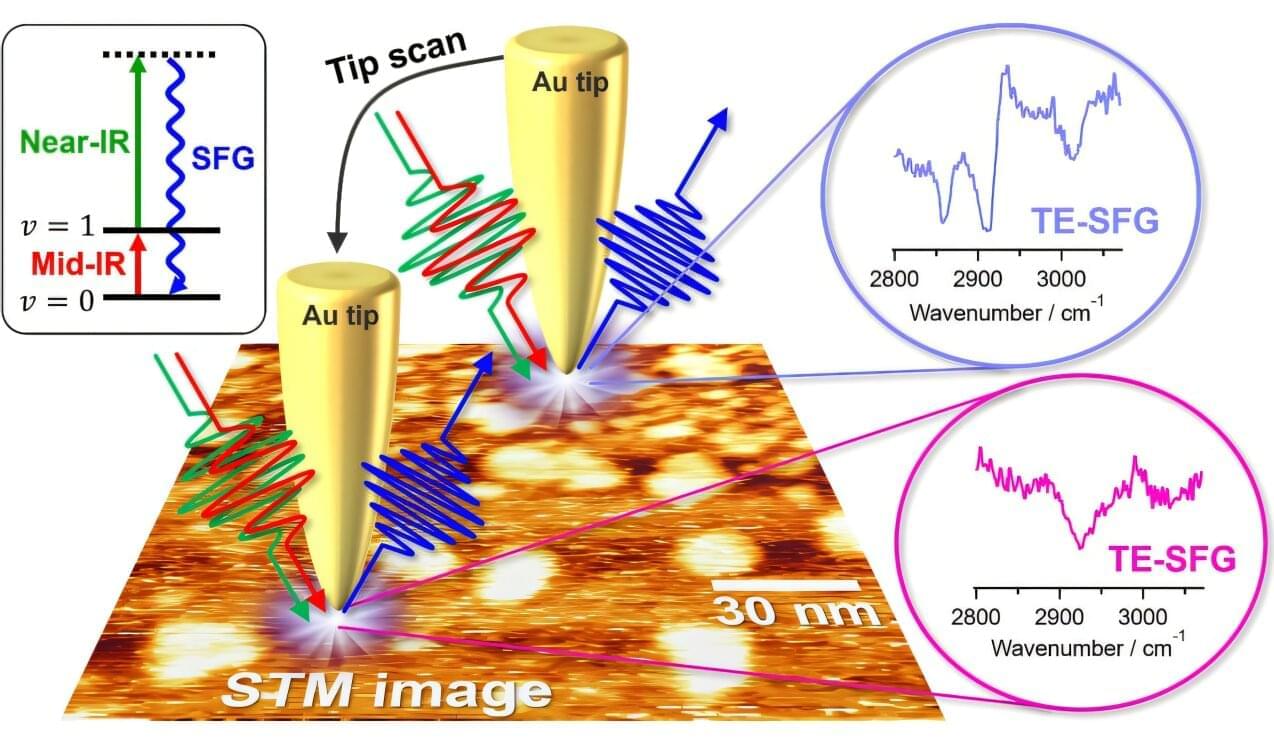
Vibrational spectroscopy technique enables nanoscale mapping of molecular orientation at surfaces
Sum-frequency generation (SFG) is a powerful vibrational spectroscopy that can selectively probe molecular structures at surfaces and interfaces, but its spatial resolution has been limited to the micrometer scale by the diffraction limit of light.
In a study published in The Journal of Physical Chemistry C, investigators overcame this limitation by utilizing a highly confined near field within a plasmonic nanogap and successfully extended the SFG spectroscopy into a nanoscopic regime with ~10-nm spatial resolution.
The team also established a comprehensive theoretical framework that accurately describes the microscopic mechanisms of this near-field SFG process. These experimental and theoretical achievements collectively represent a groundbreaking advancement in near-field second-order nonlinear nanospectroscopy, enabling direct access to correlated chemical and topographic information of interfacial molecular systems at the nanoscale.
“Evolution and Intelligence: inversion and a positive feedback spiral” by Michael Levin
This is a ~50 minute video on evolution from the perspective of diverse intelligence. I discuss 3 main things: the nature of the mapping between genotype and phenotype (an intelligent, problem-solving process that interprets genomic prompts, not simply a complex mechanical mapping), the implications for evolution of operating over such a multi-scale agential material, and a few recent findings about the origin of the intelligence spiral taking place before differential replication dynamics kick in.
Editing by https://twitter.com/DNAMediaEditing
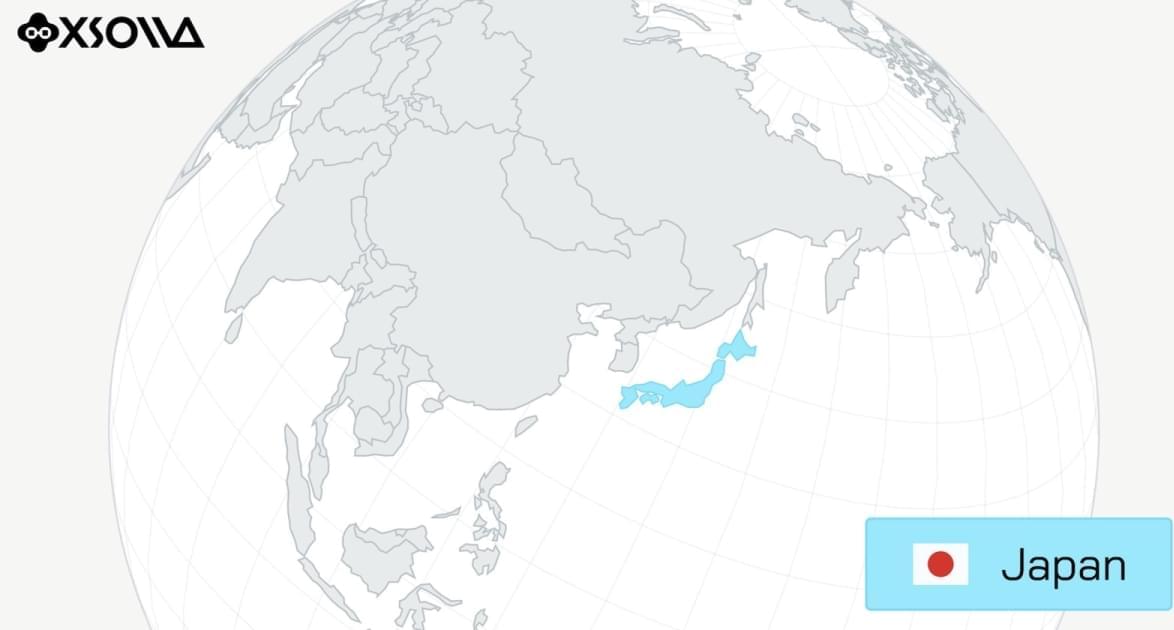
SPHEREx Images and a New Anomaly Regarding the Gas Plume Around 3I/ATLAS After Perihelion
A new paper led by Carey Lisse (accessible here) reports large-scale images of the gas plume around the interstellar object 3I/ATLAS after perihelion, based on data collected last month by the SPHEREx space observatory. The data show enhanced mass loss of dust and gas around 3I/ATLAS.
The new images of 3I/ATLAS were taken in the wavelength range of 0.75–5.0 microns between the 8 and 15 of December, 2025. Each image spans 30,000 kilometers on a side. On these large scales, the brightness maps of dust and organics were found to be pear-shaped, with an anti-tail elongation in the direction of the Sun. All six other gas plumes were found to be nearly round. The major gas species were identified as: cyanide (CN, at a wavelength of 0.93 microns), water (H2O, in the wavelength range of 2.7–2.8 microns), Organics (C-H, between 3.2–3.6 microns), carbon-dioxide (CO2, 4.2–4.3 microns), and carbon-monoxide (CO, 4.7–4.8 microns). The CO2 gas-plume continues to extend out to a few hundreds of thousands of kilometers. The dust spectrum can be described as the sum of scattered sunlight and thermal emission.
Most notably, the signature of sub-micron dust particles that would have enhanced the blue color via Rayleigh scattering are absent. Moreover, these small particles would have also been subjected to a strong solar radiation-pressure and would have formed the standard cometary tail, extending away from the Sun — which is not observed — as I argued in an essay, posted here on December 25, 2026.
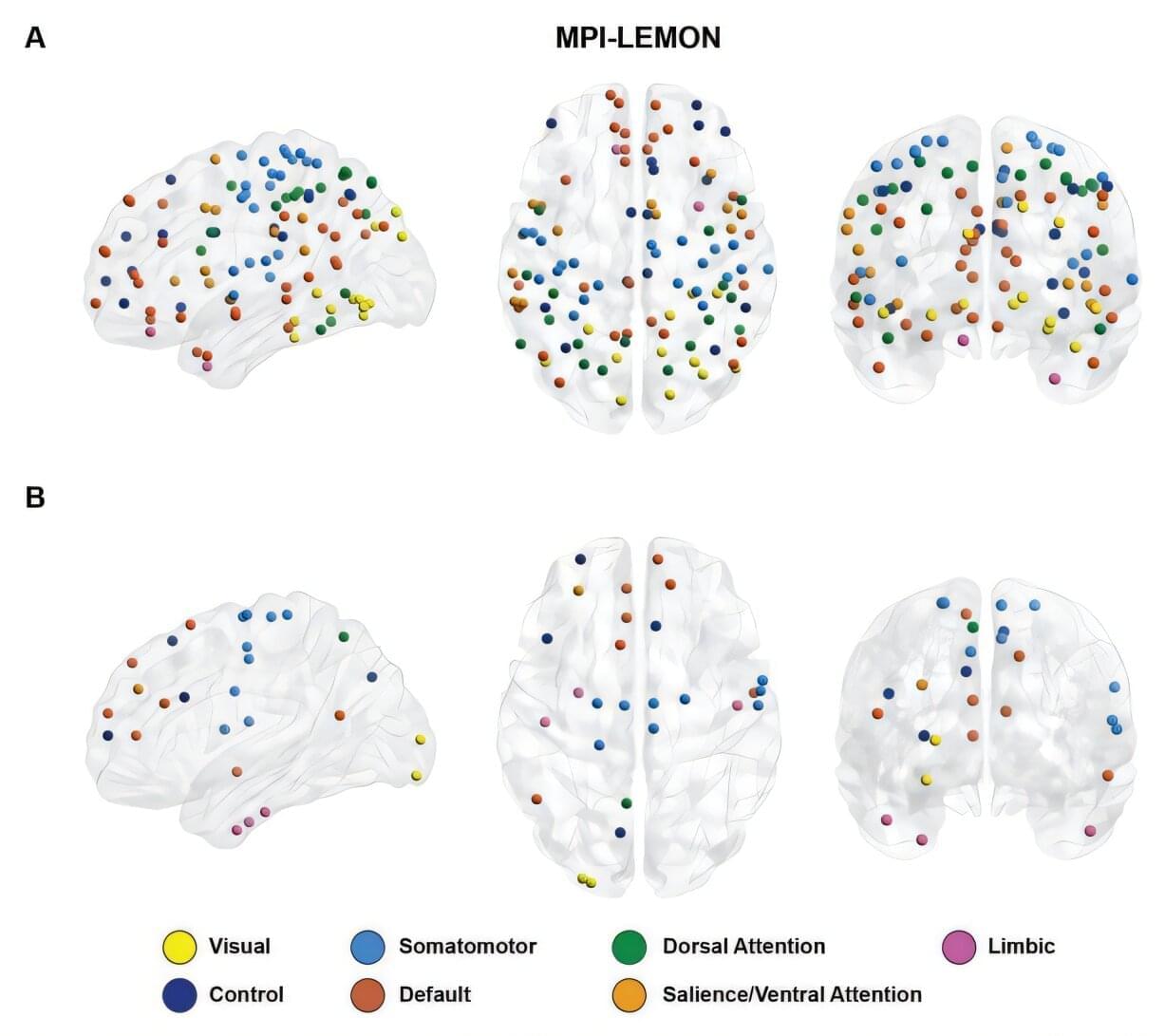
Mathematics uncovers shifting brain connectivity in autism and aging
It is a central question in neuroscience to understand how different regions of the brain interact, how strongly they “talk” to each other. Researchers from the Max Planck Institute for Mathematics in the Sciences Leipzig, Germany, the Institute of Mathematical Sciences in Chennai, India, and colleagues demonstrate how mathematical techniques from topological data analysis (TDA) can provide a new, multiscale perspective on brain connectivity. The study was published in the journal Patterns.
With the rise of large neuroimaging datasets, scientists now work with detailed maps of brain connectivity—network representations that show how hundreds of brain regions fluctuate and coordinate their activity over time. But making sense of these enormous networks poses a challenge: What patterns matter? Which changes signal healthy aging, and which reflect differences associated with autism spectrum disorder (ASD)?
The study introduces a mathematical innovation that helps answer precisely these questions. Researchers applied persistent homology, a tool from topological data analysis (TDA), to detect how brain connectivity reorganizes during healthy aging and in ASD.
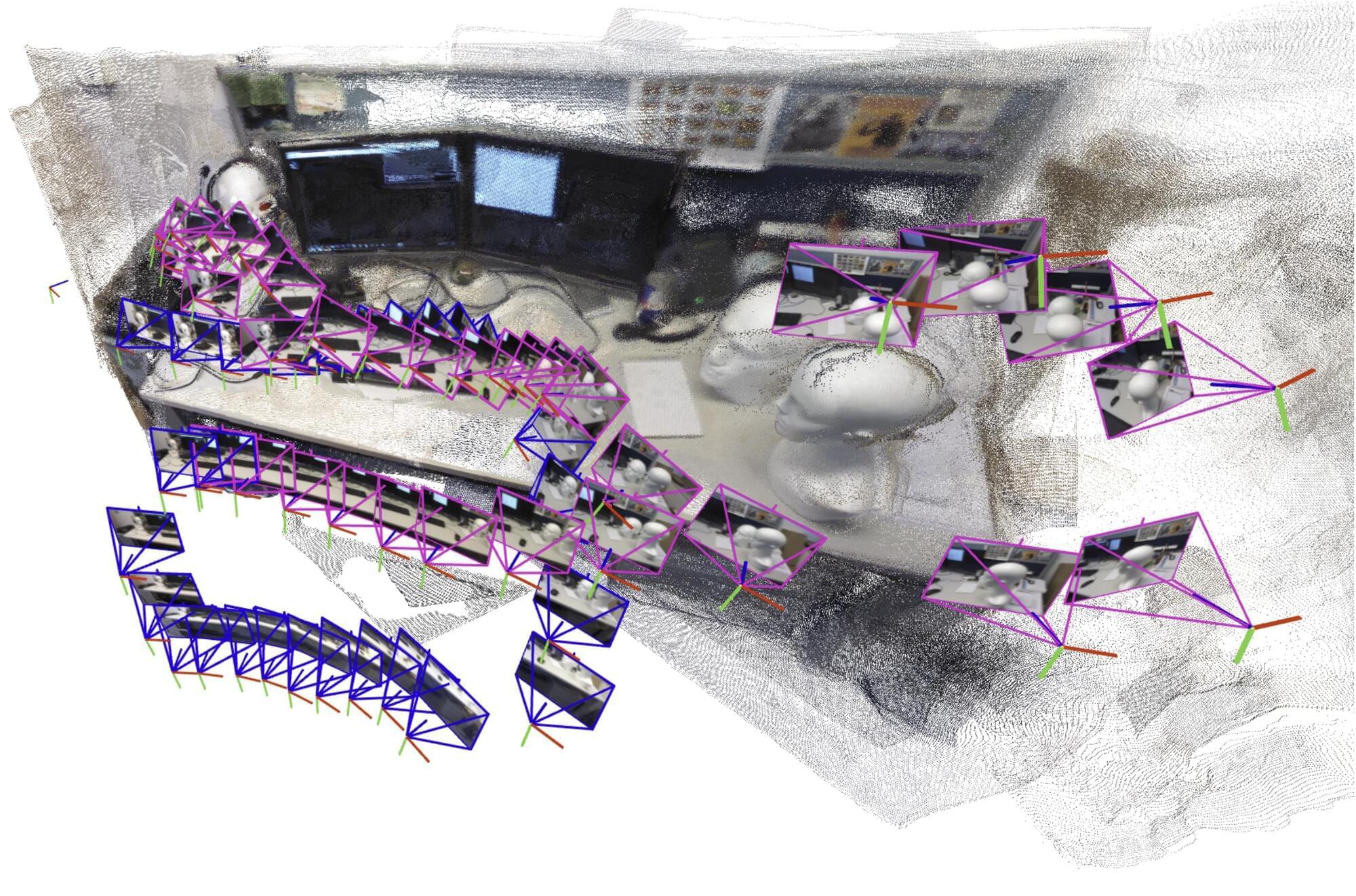
Teaching robots to map large environments
A robot searching for workers trapped in a partially collapsed mine shaft must rapidly generate a map of the scene and identify its location within that scene as it navigates the treacherous terrain.
Researchers have recently started building powerful machine-learning models to perform this complex task using only images from the robot’s onboard cameras, but even the best models can only process a few images at a time. In a real-world disaster where every second counts, a search-and-rescue robot would need to quickly traverse large areas and process thousands of images to complete its mission.
To overcome this problem, MIT researchers drew on ideas from both recent artificial intelligence vision models and classical computer vision to develop a new system that can process an arbitrary number of images. Their system accurately generates 3D maps of complicated scenes like a crowded office corridor in a matter of seconds.

Epistemological Fault Lines Between Human and Artificial Intelligence
Walter (Dated: December 22, 2025)
See… https://osf.io/preprints/psyarxiv/c5gh8_v1
Abstract: Large language models (LLMs) are widely described as artificial intelligence, yet their epistemic profile diverges sharply from human cognition. Here we show that the apparent alignment between human and machine outputs conceals a deeper structural mismatch in how judgments are produced. Tracing the historical shift from symbolic AI and information filtering systems to large-scale generative transformers, we argue that LLMs are not epistemic agents but stochastic pattern-completion systems, formally describable as walks on high-dimensional graphs of linguistic transitions rather than as systems that form beliefs or models of the world. By systematically mapping human and artificial epistemic pipelines, we identify seven epistemic fault lines, divergences in grounding, parsing, experience, motivation, causal reasoning, metacognition, and value. We call the resulting condition Epistemia: a structural situation in which linguistic plausibility substitutes for epistemic evaluation, producing the feeling of knowing without the labor of judgment. We conclude by outlining consequences for evaluation, governance, and epistemic literacy in societies increasingly organizedaround generative.
Cc: ronald cicurel ernest davis amitā kapoor darius burschka william hsu moshe vardi luis lamb jelel ezzine amit sheth bernard W. kobes.
See…
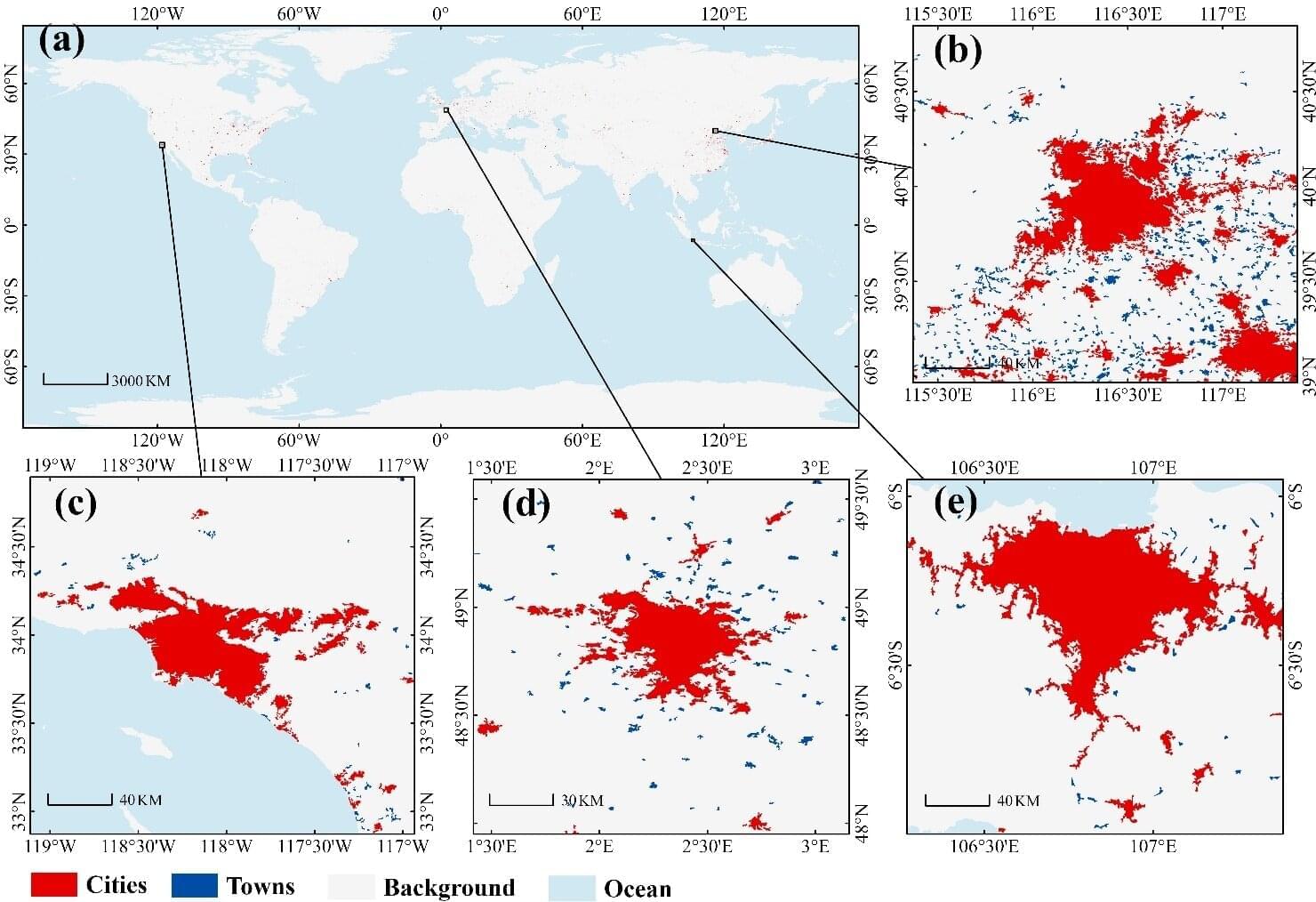
New dataset maps global city boundaries in high resolution from 2000 to 2022
A research team led by Prof. Liu Liangyun from the Aerospace Information Research Institute of the Chinese Academy of Sciences (AIRCAS) has produced the first comprehensive, high-resolution map of global city and town boundaries, offering a view of how urban boundaries have expanded and transformed over the past two decades. The new dataset—derived from 30-meter-resolution satellite observations—fills a long-standing gap in global urban studies.
Cities and towns are the dominant form of human settlement, playing a crucial role in sustaining ecological balance and advancing sustainable development. However, their complex spatial structures and rapid evolution have made high-resolution global urban boundary datasets scarce. To address this gap, the team integrated the GISD30 global impervious surface dynamic dataset with LandScan global population data to develop the Global City and Town Boundaries (GCTB) Dataset, which covers the period from 2000 to 2022.
Published in Scientific Data, the study details the researchers’ development of a morphology-oriented boundary delineation framework that combines kernel density estimation (KDE) and cellular automata (CA) to accurately map urban boundaries. When compared with multiple reference datasets, the GCTB Dataset showed the strongest agreement with the manually curated Atlas of Urban Expansion, achieving an R2 value of approximately 0.88—indicating high reliability in capturing urban extents.
